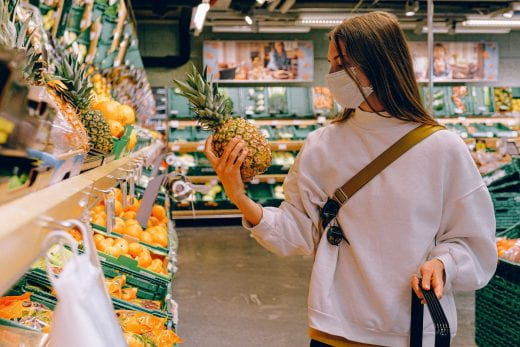Welcome to Better Kansas where this week we share information on readily accessible education for managing Type 2 diabetes, handling conflict, raised beds in gardens, maps showing crops in every Kansas county and tons of information for livestock producers. This is a small glimpse of what K-State Research and Extension across the state has to offer. Share on social media and subscribe! – Mary Lou Peter mlpeter@ksu.edu
Better Living, Better Communities
IMAGINE A GATHERING OF 10 OF YOUR CLOSEST FAMILY AND FRIENDS. Now imagine learning that one of you has a disease that may lead to heart disease, blindness, kidney failure and limb amputations. And it’s the seventh leading cause of death in the United States. That’s the reality of Type 2 diabetes, and nearly one in 10 Kansans has it. But proper nutrition and exercise go a long way toward managing it and to that end, the popular Kansas Dining with Diabetes program is now available as a self-paced educational resource online. Don’t be dissuaded by the fact upcoming programs are hosted by a particular county. That’s the beauty of virtual learning. You can be anywhere and participate. Questions? Check with your local K-State Research and Extension office.
FOR MANY OF US, IT’S A LIFELONG STRUGGLE … figuring out ways to deal with conflict. The article Mindful Conflict Resilience, Not Reactivity resonated with me. The first suggestion, “Always pause” seems so obvious but in reality isn’t always my first response. Some people have learned to go to their workshop and build something. Others go shopping. For me, I’ve found that taking a walk helps. Unfortunately, and with apologies to my children with whom I didn’t have near enough patience when they were teenagers, I’m better at this as I’ve ummm … matured. For more suggestions, take a look.
Better Farming, Ranching and Gardening
I’VE NOTICED MORE AND MORE PEOPLE USING RAISED BEDS IN THEIR GARDENS IN RECENT YEARS and understandably so. Soil raised above ground level warms more quickly in the spring so gardeners can plant earlier, plus the beds are often filled with higher quality soil than found in many yards. I personally like the idea of being able to reach all the plants! The fact sheet Raised Bed Gardening offers information on construction, size, location, plant selection, soil mix, planting dates, fertilization and more.
I’VE WRITTEN A LOT ABOUT AGRICULTURE IN THIS SPACE AND find these maps showing what crops are grown across every county in Kansas interesting. You all in Russell County have a lot of grass/pasture and wheat, plus a whole lot of other crops! And Woodson County, you rock with grass/pasture and soybeans and more. Even Sedgwick County, home to Wichita, has a lot of pasture, winter wheat, soybeans and other. The County Cropland Data Layer Maps, produced by the USDA’s National Agricultural Statistics Service and brought to us by K-State’s Agmanager.info also show land in deciduous forest, developed land, open water and wetlands. This would be a great resource for teachers to begin a conversation to show students what crops are grown right around them.
EVEN WITH THE PANDEMIC AND ALL ITS IMPLICATIONS, LIVESTOCK PRODUCERS are still tending their animals: cattle are calving, sows are farrowing and chicks are hatching and extension agents, specialists and researchers are still working to support them. A recent News from KSU Animal Sciences is full of short items about K-State student activities, educational opportunities for producers, management tips, and research findings, plus get to know a couple of faculty members via short profiles. As usual, the Management Minute section which highlights how failure can be an excellent teacher applies to pretty much all of us, no matter what we do for a living. And don’t miss “What (beef) producers should be thinking about in May.”
_
For more resources and activities, contact the K-State Research and Extension office in your area. Check out our other blogs and subscribe to our weekly emails here: https://www.ksre.k-state.edu/news/blogs/












